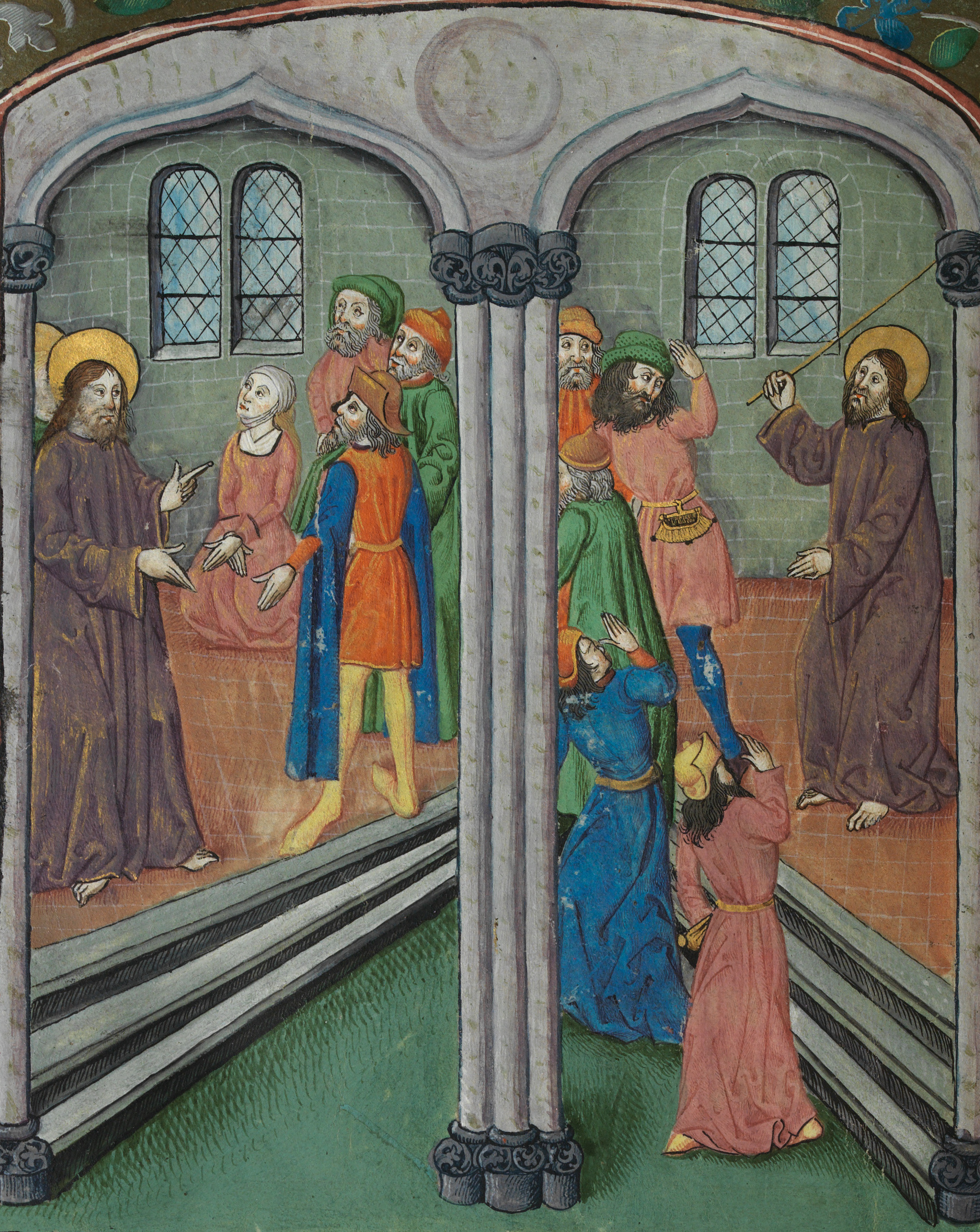Today’s guest post is by Brandon Rappuhn, a Logos copywriter.
 According to Catholic teaching, the process of sanctification is an ongoing quest. Humility doesn’t permit us to often talk about our process of sanctification, but seeing that I’m not yet perfect, I’ve taken the time to reflect on how I’ve been growing in imitation of Christ. It wasn’t until recently that I had discovered that it was St. Francis de Sales who was helping me along this process. A year ago, I began studying my way through St. Francis de Sales with his famous Introduction to the Devout Life. He taught me to speak well and highly of God and of others with the careful and clear words of a mentor:
According to Catholic teaching, the process of sanctification is an ongoing quest. Humility doesn’t permit us to often talk about our process of sanctification, but seeing that I’m not yet perfect, I’ve taken the time to reflect on how I’ve been growing in imitation of Christ. It wasn’t until recently that I had discovered that it was St. Francis de Sales who was helping me along this process. A year ago, I began studying my way through St. Francis de Sales with his famous Introduction to the Devout Life. He taught me to speak well and highly of God and of others with the careful and clear words of a mentor:
But speak always of God, as of God; that is, reverently and devoutly; not with ostentation or affectation, but with a spirit of meekness, charity, and humility, distilling, as much as you can, as is said of the Spouse in the Canticle (Cant. 4:11), of the delicious honey of devotion, and of the things of God, drop by drop, into the ears sometimes of one and sometimes of another, praying to God in secret, that it may please Him to make this holy dew sink deep into the hearts of those that hear you.[1]
This is much as our Lord taught us in St. Matthew 6:6–7, and I began praying that way. I then discovered, through the writings of both St. Louis de Montfort and St. Jane Frances de Chantal, that de Sales was a devoted Mariologist. De Chantal writes,
While [Francis de Sales] was still a student, he made a vow to say the rosary every day of his life, in honour of God and of the Blessed Virgin, to obtain deliverance from a grievous temptation which molested him, and from which he was delivered. He always carried it in his belt as a sign that he was the servant of Our Lady, he persevered until death in saying it, and always said it with great devotion, spending an hour in so doing, for he meditated while saying it.[2]
I was so inspired that I’ve since carried my rosary under my belt everywhere I go, praying my friends, family, colleagues, and priests.
Now, St. Francis de Sales, the patron for writers and the conversion of Protestants, is appearing throughout my studies in Catholic apologetics. He wrote hundreds of theological treatises and disseminated them throughout the region of Le Chablais, calling into question the motives of the leaders of the Reformation in the region while defending the Rule of Faith (Tradition and Sacred Scripture), the doctrines of the Sacraments and Purgatory, and the authority of the Catholic Church. But his writing provides a spiritual approach to apologetics that I’ve been missing this whole time. In a letter to a woman involved in a legal dispute, St. Francis has this to say:
Remember that our Lord never spoke one word against those that condemned him. He did not judge them. Instead, even though he was unjustly condemned, he was gentle as a lamb and his only revenge was prayer for his enemies. We, on the other hand, judge everyone, our antagonists and our judges. We bristle with complaints and reproaches. Believe me, dear daughter, we must be steadfast in loving our neighbor.[3]
Here is a man who endured the toughest of hardships in bringing Catholic apologetics to the Protestant-dominated region of Le Chablais. He endured threats and violence, suffered under extreme weather conditions that threatened his mission, and never lost the peace and love he exhibited every day.
The apologetics of de Sales are not without the practical element of religious practice: love. Doctrine, theology, philosophy—we can study these things all day long, but without love, we are nothing (1 Cor. 13:2).
I pray that we could all have that Christ-like strength of spirit and longsuffering as we study the life and teachings of St. Francis de Sales.






[…] few days ago I wrote on the Verbum blog about St. Francis de Sales and his teachings drawing me closer to Christ throughout 2013. While […]
“St. Francis de Sales, the patron for writers and the conversion of Protestants”
IOW, the perfect saint for a Catholic working at Logos. 🙂
Thank you Brandon. I thoroughly enjoyed this post.